Counseling resources available at no cost for Maryland residents
Maryland Lottery and Gaming regularly encourages Lottery, casino and sports wagering customers to “Play Responsibly” and is spotlighting responsible gaming resources during March in recognition of Problem Gambling Awareness Month.
The Maryland Lottery deepened its commitment to responsible play initiatives in 2022 when it received the highest level of certification from the World Lottery Association (WLA). Maryland is one of only 10 U.S. lotteries to achieve the WLA’s Level 4 status, which requires continual evaluation and improvement of responsible gaming efforts in all aspects of lottery operations, from game development to marketing and advertising, to retail sales.
“We strive to send a message of responsible play in everything we do,” said Maryland Lottery and Gaming Director John Martin. “Along with that, it’s important for everyone to know that the state has made free resources available, including no-cost counseling.”
One of those resources is Maryland Lottery and Gaming’s Voluntary Exclusion Program (VEP), which was established in December 2010 for Lottery and casino players. In 2016, the VEP was expanded to include large electronic instant bingo halls, and in the past year the program was made available for sports wagering and daily fantasy sports participants. By enrolling in the VEP, individuals voluntarily exclude themselves from participating in gambling with the understanding that they will forfeit any winnings and are prohibited from entering casinos, sportsbooks and bingo halls, or from using mobile wagering and fantasy sports platforms. Gaming operators do their part by excluding VEP members from their direct marketing programs.
“We’re always looking to raise awareness of the many resources that are available in Maryland, and we encourage people to seek help if they need it,” said Jasmine Countess, Maryland Lottery and Gaming’s Responsible Gaming Director and coordinator of the VEP.
Information about problem gambling and no-cost counseling services is available 24 hours a day by calling 1-800-GAMBLER or visiting mdgamblinghelp.org. The Maryland Center of Excellence on Problem Gambling, a program of the University of Maryland School of Medicine, coordinates a statewide network of licensed problem gambling counselors.
Martin emphasized that the state’s free services are intended to assist problem gamblers as well as their families and loved ones.
“It’s not easy to start a conversation with someone in your life who may need help,” Martin said. “But there are professionals who can guide you in the right direction.”
The Maryland Center of Excellence on Problem Gambling and the state’s six casinos have also released statements for Problem Gambling Awareness Month:
Mary Drexler, MSW, Program Director, Maryland Center of Excellence on Problem Gambling:
“While many people can gamble recreationally without problems, some Marylanders may struggle with gambling behaviors which can cause negative consequences not only for themselves, but for those they care about. With the recent implementation of online and mobile sports betting, there is greater accessibility and opportunities to bet on your favorite teams. This ease of access may potentially increase the risk of developing a gambling problem. If you, or someone you know is struggling with problems caused by gambling, we can connect you to resources including no-cost counseling, or a peer recovery support specialist who has been there and can help with your road to recovery. Simply call, text, or chat 1-800-GAMBLER 24/7 or go to helpmygamblingproblem.org.
Hollywood Casino Perryville:
“Our commitment to promoting responsible gaming is personal — our team members live in the same communities as our patrons and, therefore, have a vested interest in offering sympathetic, discrete assistance to anyone who approaches asking for help, and they’re trained to identify outward signs of problem gambling.”
Horseshoe Casino Baltimore:
“Over 30 years ago, Caesars Entertainment created the extraordinary by implementing the industry’s first responsible gaming initiatives. We’ve been blazing the trail ever since because promoting responsible gaming is not only our duty — it’s part of our company’s history and culture. Our goal is unequivocal: We want our guests who game at our facilities and on our online products to do so for the right reason — to simply have fun. With everyone’s help, we’re taking significant steps toward that goal every day.”
Live! Casino & Hotel:
“At Live!, we provide our team members with training and information that supports our unwavering commitment to responsible gaming. And we are proud to partner with the many local agencies that help provide resources and tools for those struggling with problem gambling.”
MGM National Harbor:
“Responsible gaming is a top priority for MGM National Harbor, MGM Resorts and BetMGM. This is reflected in our daily operations and employee training program that extends across our entire enterprise. As a gaming and hospitality leader, it’s important for us to increase awareness of responsible gaming and problem gambling and share resources with those who need them, while promoting a legal and regulated form of entertainment. This commitment puts the best interests of our guests, customers, and their families at the forefront. It’s not only part of our social responsibility, it’s something we believe in.”
Ocean Downs Casino:
“Our goal at Ocean Downs is to increase our team’s awareness of problem gambling issues by providing educational opportunities through continued training and informative activities to all team members in order to grow their knowledge and better assist our guests who may be experiencing problem gambling issues.”
Rocky Gap Casino:
“Rocky Gap Resort and Casino is proud to join the National Council on Problem Gambling (NCPG) and Maryland Center of Excellence on Problem Gambling in observing Program Gambling Awareness Month. Rocky Gap’s goal is to promote safe and responsible gambling in a fun, welcoming atmosphere. We strive to provide an accepting place for those experiencing gambling issues to receive the help they deserve and share resources for them to do so.”






